The National has made its largest stage available to one of the nation’s smallest talents. If Brian Friel had been born in Dorset rather than in Co. Tyrone he’d have enjoyed an unremarkable career writing episodes of The Archers with the odd stint on Emmer-dale. He’s a champion witterer whose plays lack suspense, pace, depth or spectacle. His characters are constantly and infuriatingly nice to each other. Occasionally they rise to mild irascibility, or a spot of vituperative teasing, but that’s about it. When he needs a crisis he turns to external sources, to destiny or to happenstance, and his plays often end with dreadful sufferings being visited on russet-faced, cheeky-chappy Irish folk by crool, crool fate.
Translations at the Olivier is set in Co. Donegal in the 1830s where the peasantry can barely scratch a living from the rocky soil. Yet they’re steeped in the classics having learned their Latin and Greek thoroughly at the local ‘hedge school’ — an informal system of education that was tolerated but not condoned by the authorities. According to Friel, the standards of teaching were world-class. The scruffy bumpkins speaking in Nornoirish accents are able to quote Homer and Aeschylus from memory. They hold earnest discussions about the etymologies of ‘acquiescent’ and ‘theodolite’. For fun, the schoolmaster improvises a Latin ode, in emulation of Ovid, on the theme of the evening star. A young crofter, uncertain which seeds to plant, consults an ancient mildewed tramp who keeps a copy of Virgil’s Georgics (a treatise on agriculture) secreted in his tattered pockets.
The peace of this high-minded academy is broken by two British army officers who arrive with orders to anglicise the local place names and to create a map of Ireland that everyone in the empire can understand. The proud Irish resist this act of vandalism and the evil British threaten them with reprisals. And therein lies the secret of Friel’s popularity. He’s a tour-guide playwright who sees every human being in terms of their nationality and every nationality in terms of its most facile attributes. The Irish are wise, humane, literate and charming. The Brits are deceitful fascists who ooze condescension while plotting the destruction of livestock and farmhouses. Friel’s reductive tendencies apply to the sexes as well. His men are credible and well-rounded creatures but his females belong to a different breed — limited, eccentric, unpredictable. On Planet Friel, a woman is generally to be found combing her hair, flirting with a bachelor or having hysterics. The purpose of the play is to indulge in a spot of Brit-bashing while making a valid historical point. The standardisation of Celtic place names was the start of a process that led to the extirpation of Irish as a living tongue. A bad thing, in many ways, but Ireland’s culture, and its writers in particular, benefitted enormously from access to the rest of the world. Without English, James Joyce and his brethren of wordsmiths would have remained unknown scribblers clinging to a rainswept bog on the north-west fringes of Europe. As would Brian Friel.
Christopher Hampton’s slick, handsome version of Tartuffe is presented in both English and French. The actors rattle through the text at lightning speed and one’s eyeballs have to keep whizzing from the stage to the train announcement boards bearing the translation. The show reveals that there are two Molières. First, the witty creator of ingenious yarns about greed, self-delusion and lust. Second, the posturing moralist who keeps underlining the quirks of human nature revealed by his plays. Unlike Chaucer, he won’t let the story speak for itself. And his insights are often banal. Someone in Tartuffe points out that a two-faced character is like a loudmouthed soldier whose tales of bravery conceal his cowardice. OK, so Molière hasn’t heard of Falstaff. Nor is he aware of the Miles Gloriosus (‘Boastful Centurion’) of the Roman age. A genius whose profundities turn out to be platitudes may not be a genius after all.
The production, directed by Gerald Garutti, sets the action in Los Angeles where Tartuffe is a fake mystic who harasses women on the side. That makes sense. But why are these rich, glamorous Californians so sexually inhibited? And what’s the source of their reverence for God, for matrimony, and for displays of public virtue? The pay-off comes at the end when a presidential emissary shows up. Cue a passage of Trump-bashing satire. But because Trump is such an obvious target he’s also a tricky one. The bar is sky-high. To be any good, a Trump gag has to be seriously good. These are only so-so.
On press night the show struck a chord and the crowd loved it. A note to the producers. We play-goers are grown-ups. We’ve read history. Why not set Molière in Molière’s age? We could understand it. Really, we could.
Got something to add? Join the discussion and comment below.
Get 10 issues for just $10
Subscribe to The Spectator Australia today for the next 10 magazine issues, plus full online access, for just $10.
You might disagree with half of it, but you’ll enjoy reading all of it. Try your first month for free, then just $2 a week for the remainder of your first year.

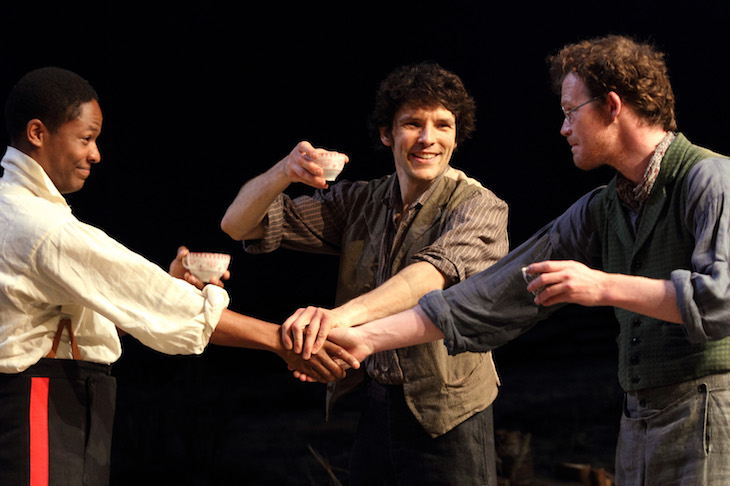
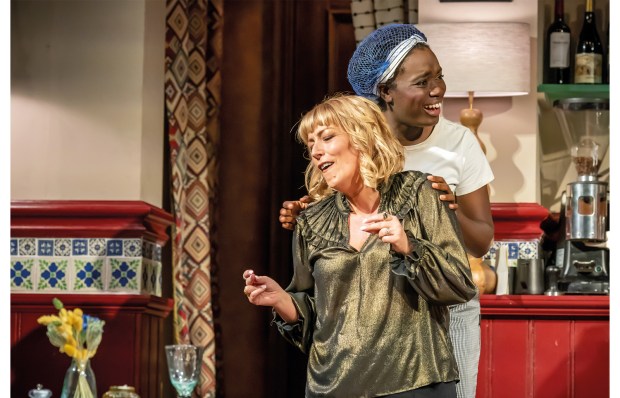
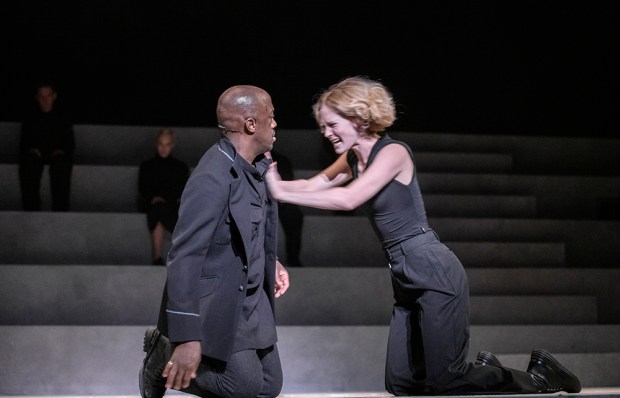
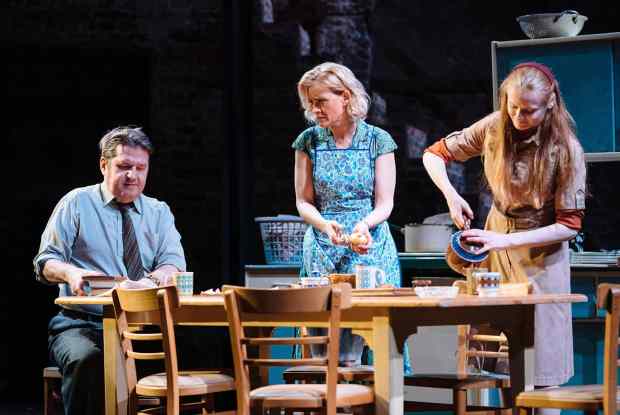
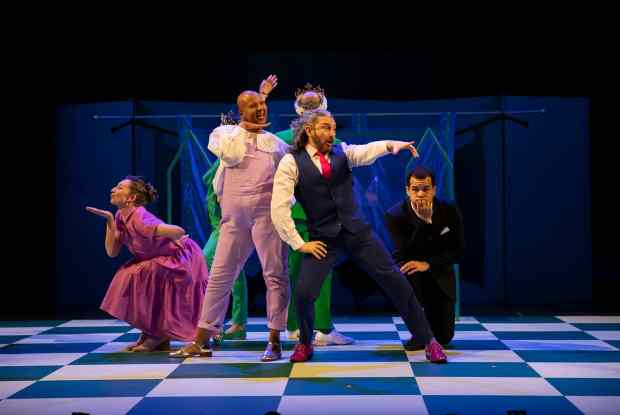








Comments
Don't miss out
Join the conversation with other Spectator Australia readers. Subscribe to leave a comment.
SUBSCRIBEAlready a subscriber? Log in